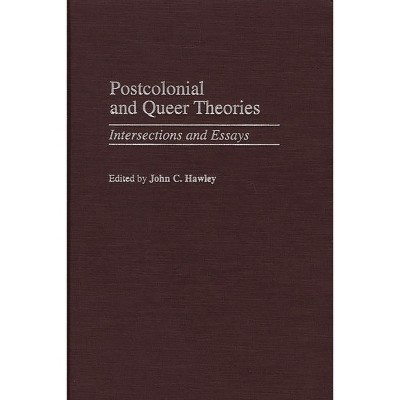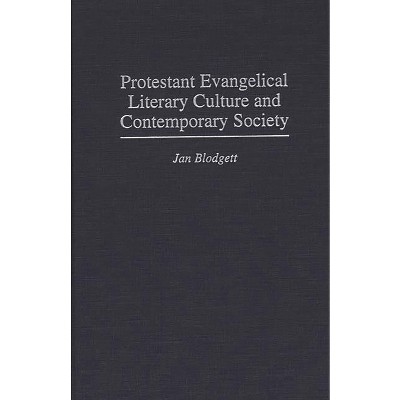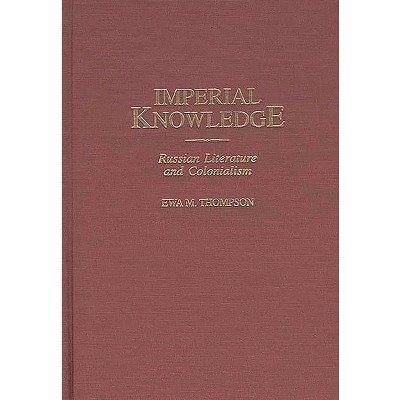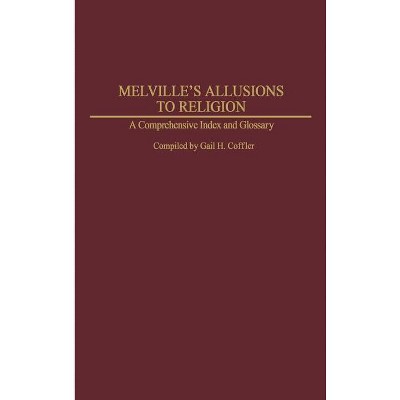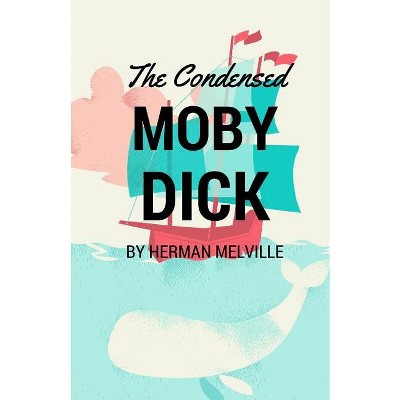Solitude and Society in the Works of Herman Melville and Edith Wharton - (Contributions to the Study of American Literature) (Hardcover)

About this item
Highlights
- The interplay between solitude and society was a particularly persistent theme in nineteenth-century American literature, though writers approached this theme in different ways.
- About the Author: LINDA COSTANZO CAHIR is Associate Professor of English at Centenary College.
- 176 Pages
- Literary Criticism, American
- Series Name: Contributions to the Study of American Literature
Description
About the Book
The interplay between solitude and society was a particularly persistent theme in nineteenth-century American literature, though writers approached this theme in different ways. Poe explored the metaphysical significance of isolation and held solitude in high esteem; Hawthorne viewed the theme in moral terms and examined the obligation of each individual to the larger community; and Emerson maintained that the contradictory states of self-reliance and solidarity are fundamental to human happiness. Herman Melville emerged with an ontological response to this issue. Questioning the nature of being, he argued that humans are essentially isolated creatures. While he grants that we are free to choose how we conduct our lives, whether in solitude or in society, we cannot escape the essential condition of our alienation. Thus in Moby-Dick, he coins the term Isolato to signify the inherent separateness of all individuals. Writing some fifty years later, Edith Wharton reached the same conclusion. This book argues that Wharton's views on solitude and society were strongly parallel to those of Melville.
Scholars have generally held that Wharton was primarily influenced by the great English, French, and Russian writers of the nineteenth century; and that with the exception of Walt Whitman, Ralph Waldo Emerson, and Henry James, she neglected the influence of American literature almost entirely. This study demonstrates that Wharton read a significant portion of Melville's writings, that she reflected on the nature and achievement of his works, and that her consideration of his importance emerged during very significant moments in her life, when she was forced to grapple with her own place as an individual in relation to a larger community. Though Melville and Wharton initially seem disparate, this book shows that they had much in common. By studying the two authors side by side, this volume reveals that they shared a similar way of seeing the world, particularly with respect to their considerations of solitude and society. Through their solitary characters, Melville and Wharton question the relationship of self and society and thus engage a universal problem of special interest to the nineteenth century.
Book Synopsis
The interplay between solitude and society was a particularly persistent theme in nineteenth-century American literature, though writers approached this theme in different ways. Poe explored the metaphysical significance of isolation and held solitude in high esteem; Hawthorne viewed the theme in moral terms and examined the obligation of each individual to the larger community; and Emerson maintained that the contradictory states of self-reliance and solidarity are fundamental to human happiness. Herman Melville emerged with an ontological response to this issue. Questioning the nature of being, he argued that humans are essentially isolated creatures. While he grants that we are free to choose how we conduct our lives, whether in solitude or in society, we cannot escape the essential condition of our alienation. Thus in Moby-Dick, he coins the term Isolato to signify the inherent separateness of all individuals. Writing some fifty years later, Edith Wharton reached the same conclusion. This book argues that Wharton's views on solitude and society were strongly parallel to those of Melville.
Scholars have generally held that Wharton was primarily influenced by the great English, French, and Russian writers of the nineteenth century; and that with the exception of Walt Whitman, Ralph Waldo Emerson, and Henry James, she neglected the influence of American literature almost entirely. This study demonstrates that Wharton read a significant portion of Melville's writings, that she reflected on the nature and achievement of his works, and that her consideration of his importance emerged during very significant moments in her life, when she was forced to grapple with her own place as an individual in relation to a larger community. Though Melville and Wharton initially seem disparate, this book shows that they had much in common. By studying the two authors side by side, this volume reveals that they shared a similar way of seeing the world, particularly with respect to their considerations of solitude and society. Through their solitary characters, Melville and Wharton question the relationship of self and society and thus engage a universal problem of special interest to the nineteenth century.About the Author
LINDA COSTANZO CAHIR is Associate Professor of English at Centenary College. She has published in journals such as "Melville Society Extracts," "The Edith Wharton Review," and "Literature/Film Quarterly," for which she also serves as a member of the Editorial Board.







